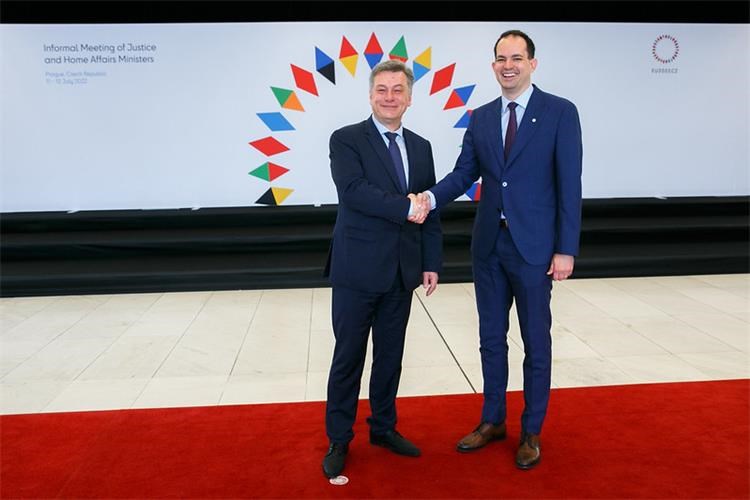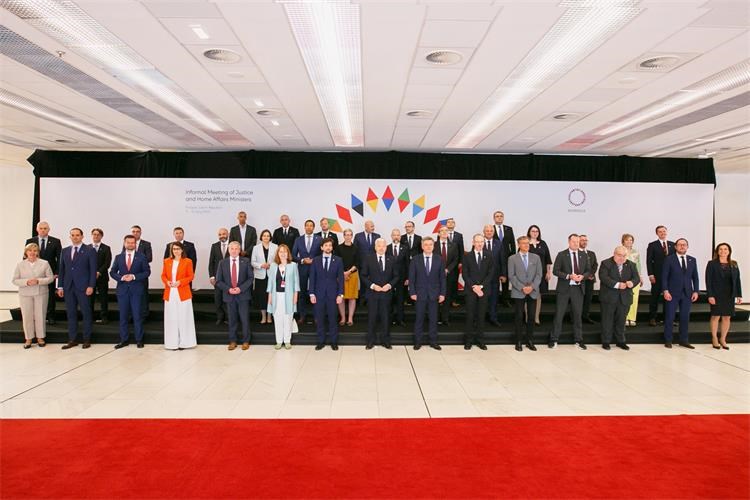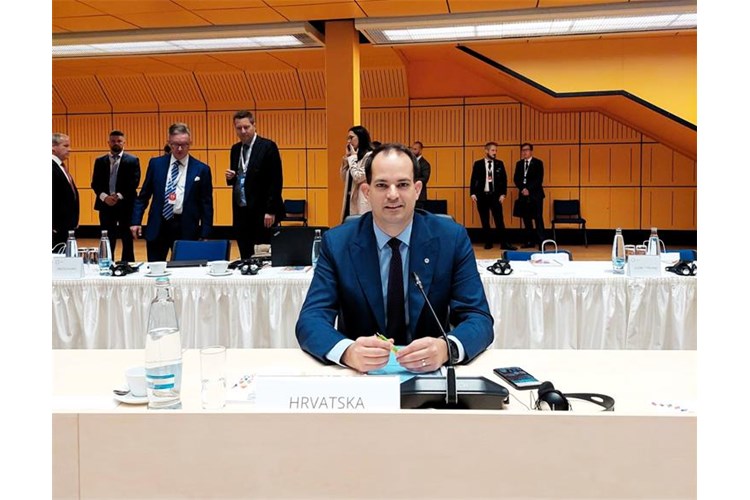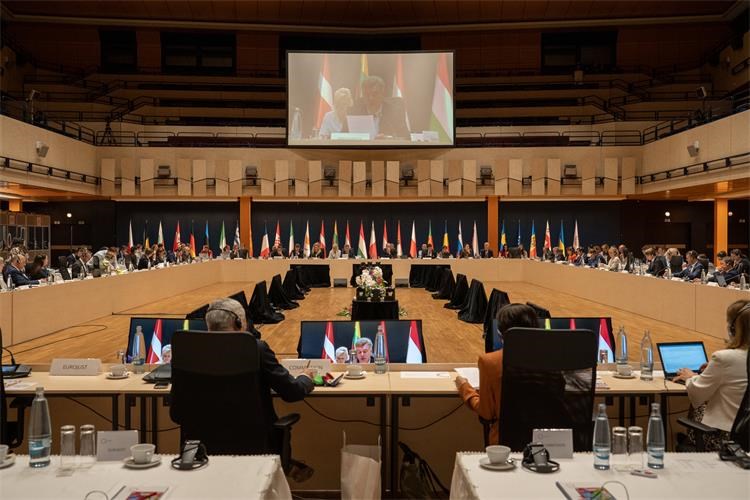- Published: 12.07.2022.
Minister Malenica at Informal Meeting of Ministers of Justice in Prague
On 12 July, Minister of Justice and Public Administration Ivan Malenica participated in the informal meeting of the Justice and Home Affairs Council in Prague, organised by the Czech Presidency of the Council of the European Union.
The justice ministers discussed the current challenges in the cross-border legal protection of vulnerable adults in civil matters, possibilities of expanding electronic communication within the framework of judicial cooperation in criminal matters in relation to non-Member States, collection and preservation of evidence of crimes committed in connection with Russian aggression in Ukraine, and the approach to harmonising victims’ rights at EU level.During the exchange of views on the current challenges in cross-border legal protection of vulnerable adults in civil matters, the ministers stressed the importance of and the need to analyse and harmonise national legislations in order to ensure preconditions for more effective redress, taking into account the legal framework at international level, and in particular the legal standards defined by the Hague Convention of 13 January 2000 on the International Protection of Adults. It was also underlined that the accession of all Member States to the Convention would certainly have a positive impact on the legal protection of vulnerable adults in civil matters.
Discussing the possibilities of electronic communication in the framework of judicial cooperation in criminal matters in relation to third countries, the ministers stressed that specific circumstances such as the coronavirus pandemic and now the war in Ukraine have led to a wider use of electronic communication in the transmission and receipt of requests for legal aid.
It was concluded that a new approach to digital infrastructure would contribute to improving judicial cooperation in cross-border criminal proceedings, not only between EU Member States, but also in relation to third countries.
During a working lunch, the ministers addressed the topic of collecting and preserving evidence for the purpose of prosecuting crimes committed in connection with Russian aggression against Ukraine. It was stressed as crucial for successful prosecution that evidence is collected in a way that makes tem usable in future judicial proceedings, whether national or international. At the same time, it is very important that the collection of evidence is not unnecessarily delayed. It is of the utmost importance that international institutions, NGOs and other countries help collect evidence, as it is essential for the successful prosecution of those most responsible to collect as much evidence as possible.
There was also an exchange of views on the approach to harmonising victims’ rights at EU level. While the evaluation of the Victims’ Rights Directive has shown that the Directive has largely achieved its objectives, it is necessary to encourage Member States to fully apply the provisions of the Directive in practice and to correct the shortcomings identified in practice by providing further training and guidance, i.e. by adopting interpretations and guidelines for practitioners to harmonise the application of the Directive.
Photo: EU2022_CZ



